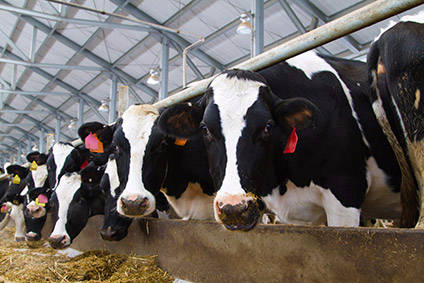
The European Parliament is considering whether to increase the price for meat across the trading bloc in an effort to reduce the environmental impact from rearing animals for food, a so-called sustainability charge.
Members of Parliament will debate the plan on 5 February, and if approved, it would apply to all parties within the European Union from 2022.

Discover B2B Marketing That Performs
Combine business intelligence and editorial excellence to reach engaged professionals across 36 leading media platforms.
Also known as the fair-meat pricing proposal, the suggested measure is outlined in a report by the TAP Coalition, made up of farming, health, and environment organisations, and calls for a new meat-pricing model to be included in the European Green Deal and Farm to Fork Strategy.
It is planned revenues from the sustainability charge, estimated to be around EUR32bn (US$35.2bn) per year by the end of the new decade, could be used to help farmers invest in more sustainable agricultural practices. At the same time, the cash may provide a means to lower VAT on consumer subsidies on vegetables and fruits, provide support for low-income households, and support developing countries in taking action to address climate change.
Pier Vellinga, a climate professor and chairman of TAPP, said: “Including the environmental cost of animal protein in the price is a crucial element of meeting EU targets for climate, biodiversity, public health and animal welfare.”
The organisations director, Jeroom Remmers, adds: “If EU meat consumption reduces and plant-based protein consumption rises, healthcare costs will reduce too, as Europeans eat roughly 50% more meat than is recommended in dietary health guidelines. We could also save billions of euros every year in lower healthcare costs.”

US Tariffs are shifting - will you react or anticipate?
Don’t let policy changes catch you off guard. Stay proactive with real-time data and expert analysis.
By GlobalDataAccording to the TAPP report, the pricing model could help reduce CO2 emissions of up to 120 million tons a year, which it says is equal to those emitted by Ireland, Denmark, Slovakia, and Estonia, and represents almost 3% of all EU greenhouse gas emissions.
Philip Mansbridge, the UK executive director of ProVeg International, a TAPP member, said: “The time has come for us to act decisively with policy on the environmental consequences of animal protein, the price of which has been kept artificially low for far too long. Here we have a solution that is fair for farmers and supports the transition to a more plant-based food system that we so urgently need if we are serious about mitigating climate change.”





